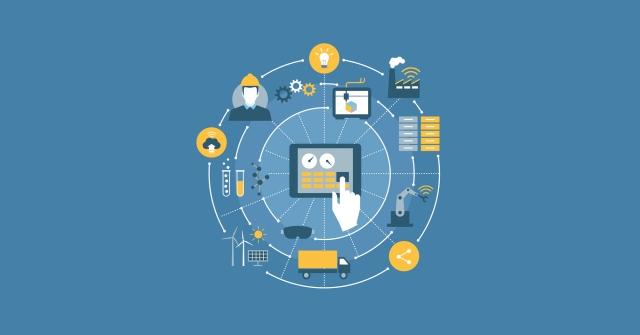The Internet allows people to communicate and businesses to continue operations 24/7, across all oceans and continents. It has reshaped, upended, and given rise to new industries, and has changed the way humans interact with the world. Once barely more than a convenient, quick, and cheap way to send messages around the world, the Internet now touches nearly every aspect of most humans’ lives—and it’s done by simply switching any device that is connected to the Internet on or off.
These devices range from coffee makers to lawnmowers, and from sensors and chips in cars and on oil rigs to vacuum cleaners. In 2017, there were over 8.4 billion connected "things," and these things will number 20 billion by 2020. These connected data-sending and -storing devices will each be part of a massive network of people-driven data known as The Internet of Things (IoT). The IoT will change the way global businesses gather, interpret, and utilize data to provide a better product or service—and how businesses operate in an increasingly data-driven world.
What is the IoT and Why Does It Matter to Global Business?
Broadly, the IoT is made up of devices that are connected to the Internet: washing machines, car engines, wind turbines, tracking chips implanted in pets, and home entertainment systems are each an element of the IoT. Sensors and chips are embedded in physical devices that emit data. This data is then uploaded to an IoT platform that analyzes the data, and is then shared to industry-specific applications.
But the IoT is more than just a collection of devices and their respective data; devices that “talk” to each other are becoming more common and will shape how the IoT is used.
The IoT allows businesses to analyze large sets of data and, based on that analysis, turn it into an action to address both processes and problems.
For example: if a car’s check engine light comes on, it’s because something is wrong with one or more of the numerous parts that make up the entire car. Sensors detect the issues, and the data gathered is then sorted through a gateway where the most relevant data is passed along to the car manufacturer’s platform. This database collects data not only from this car, but from every other car that was produced by the manufacturer, allowing the company to analyze large sets of data and to create part-specific applications and platforms.
Similarly, the transportation industry stands to benefit from IoT applications; applying sensors for predictive maintenance in trucks not only allows for automatically scheduled maintenance, but scheduling maintenance along the truck’s route to keep it on track for its anticipated delivery date. If the truck requires a specific part, its system can alert an operator thousands of miles away, prompting him or her to order and ship the part to the desired service center—keeping the truck on schedule with minimal delay.
This data can be managed anywhere in the world, making it an excellent way for businesses to keep operations running smoothly—even in another country. The concept applies to any global business that needs to keep track of its shipping, sales, maintenance, or any other need that can be addressed remotely.
How Will Businesses Manage Data and Devices?
Despite the rapid growth of the IoT, there is little standardization of platforms. For the IoT to grow into a web where “things” seamlessly speak to each other, there must be a standard by which communication can occur. At present, there exists little standardization. But this is changing; the Institute of Electrical and Electronics Standards Associated offers a sizable list of standards that are currently in development in order to work for different applications.
Microsoft has developed its device management system, Azure, which allows users to manage devices remotely, and offers remote reconfiguration and software updates without the need of a physical presence. Similarly, Amazon is getting in on platform management and security as well. Amazon’s AWS IoT allows “things” to securely talk and interact with each other, as well as offering communication between devices even when they are not connected.
IoT Industry Projected to Accelerate, Drive the Fourth Industrial Revolution
In 2017, all markets that made up the IoT spent a combined $235 billion—and that number is projected to more than double at $520 billion in 2021. To keep up with this demand, data centers and analytics will outpace other areas of the IoT, leading to other, newer sectors that will continue to support the ever-growing IoT. The IoT is growing at such a rate that, in 2017, the World Economic Forum announced that the IoT will fuel the Fourth Industrial Revolution by changing business models, offering technological transformations, and creating more dynamic distributed networks. If the WEF is correct, then the IoT could become a cornerstone in advancing the Fourth Industrial Revolution.
Rely on Data—and an Experienced Expansion Partner
For businesses that rely on hard data to drive decision-making, the Internet of Things will likely prove invaluable—especially for companies that are headquartered in one country and have remote operations across the globe. For businesses that are ready to expand or are considering a global expansion, reach out to Velocity Global today to learn how we can assist with each step the expansion process.



